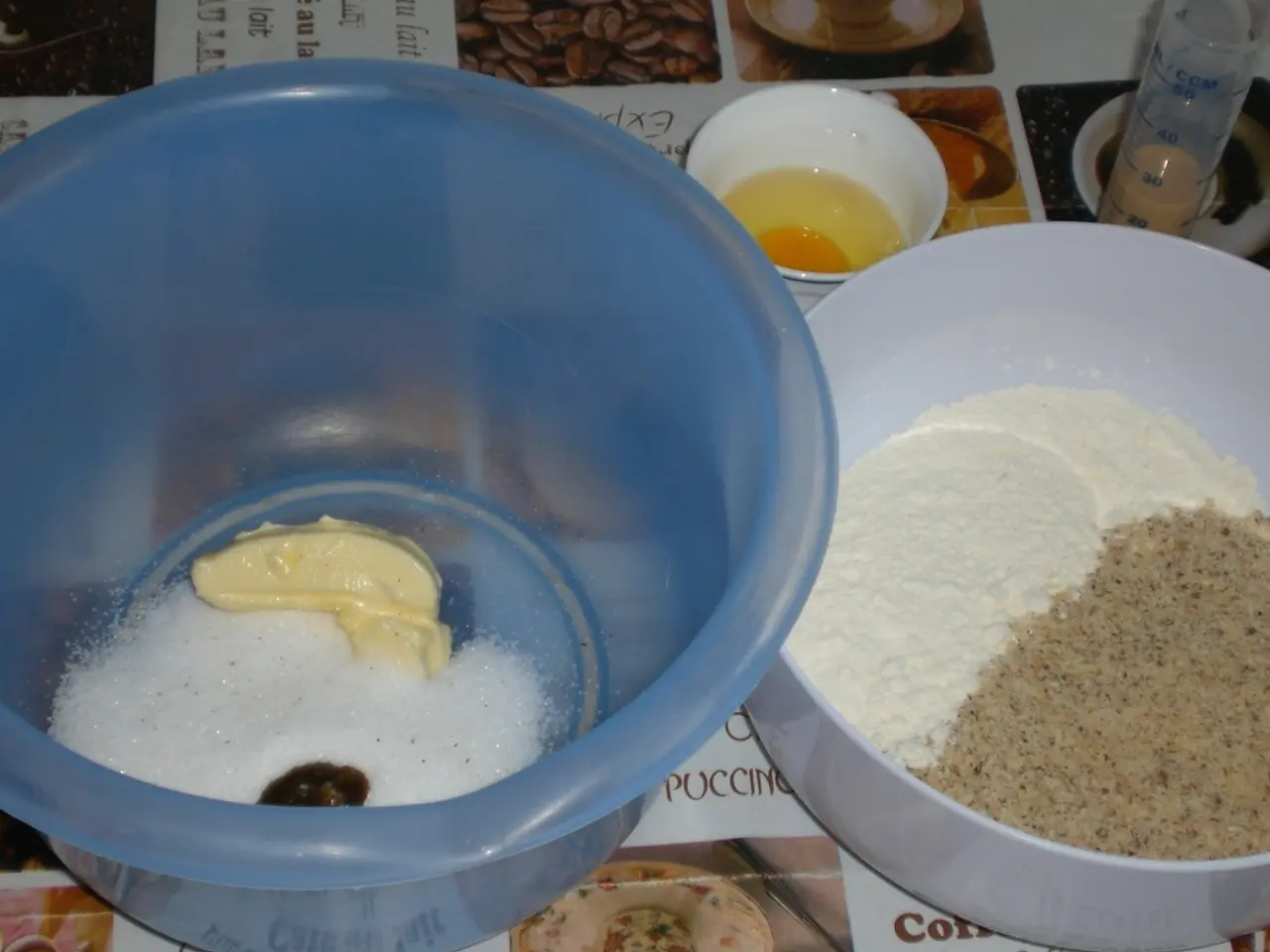Connection between Ulcerative Colitis and Fatigue Examination
Fatigue is a common issue among individuals living with ulcerative colitis (UC), with 80% of active UC patients and 50% of those in clinical remission experiencing feelings of overwhelming tiredness or low energy[1]. This article aims to provide an overview of the causes, potential treatments, and lifestyle approaches for managing fatigue in UC.
UC-related fatigue primarily results from chronic inflammation, immune system dysregulation, and complications related to the disease[1]. The persistent inflammation in the colon leads to the release of proinflammatory cytokines (like IL-6, IL-12, and TNF-α), which can cause systemic symptoms, including fatigue[1]. Additional factors contributing to fatigue include weight loss, poor appetite, and possibly the side effects of UC treatments[2][3].
Potential treatments for fatigue in UC patients focus on controlling the underlying inflammation and addressing contributory factors. Effective management of UC inflammation with medications such as sulfasalazine, corticosteroids, and immunosuppressants reduces inflammatory cytokines and, consequently, fatigue[3]. Correcting anemia (common in UC due to chronic blood loss) and nutritional supplementation can improve energy levels[4]. Managing electrolyte imbalances, hydration, and ensuring adequate nutritional intake help alleviate fatigue during flares[4]. Lifestyle approaches such as stress management and dietary modifications may support overall well-being and reduce fatigue[2]. In severe cases unresponsive to medical therapy, surgery (e.g., colectomy) might be required, after which fatigue may improve if inflammation resolves[3][4].
Several factors associated with UC, such as disease activity, psychological stress, and medication, can cause a person to experience fatigue[1]. Anemia, nutritional deficiencies, depression, and sleep disturbances are potential causes of fatigue in people with UC[1]. Regular exercise can help reduce symptoms of fatigue in people with UC[1].
It is essential to discuss fatigue with a doctor, as it may indicate underlying complications. The Crohn's and Colitis Foundation indicates that IBD can lead to fatigue due to arthritis, inflammation, anemia, poor sleep, nutritional deficiencies, and medication side effects[1]. Avoiding smoking can improve symptoms of fatigue and provide other health benefits[1].
In addition, managing work and other tasks before fatigue sets in can be helpful. Asking for help and taking regular breaks can help individuals with UC cope with feelings of fatigue[1]. Long naps, particularly later in the day, should be avoided[1].
Research on the treatment of fatigue in people with UC is ongoing, with a 2018 study noting that females with UC have a higher risk of experiencing fatigue[1]. More research is needed to fully understand the causes and best treatment methods for fatigue in UC.
Fatigue in children with UC is a concern and may be caused by similar factors as in adults[1]. Regular exercise and a balanced diet can help reduce symptoms of fatigue in children with UC[1].
In summary, fatigue in UC stems from inflammation-driven systemic effects and associated complications, and treatment includes controlling inflammation, treating anemia and nutritional deficiencies, along with supportive care to restore energy[1][2][3][4]. By understanding the causes and addressing potential contributors, individuals with UC can better manage their fatigue and maintain a better quality of life.
References:
[1] Crohn's and Colitis Foundation. (2020). Fatigue and Ulcerative Colitis. Retrieved from https://www.crohnscolitisfoundation.org/sites/default/files/2019-05/Fatigue-and-Ulcerative-Colitis.pdf
[2] Hanauer SB, Loftus EV Jr, Sands BE. (2012). Inflammatory Bowel Disease. In: Goldman L, Ausiello D, editors. Cecil Medicine. 24th ed. Philadelphia: Saunders Elsevier; 2012. Chapter 116.
[3] Feldman SL, Sands BE, Brandt LJ, et al. Surgical Management of Inflammatory Bowel Disease. In: Feldman M, Friedman LS, Brandt LJ, editors. Sleisenger & Fordtran's Gastrointestinal and Liver Disease: Pathophysiology/Diagnosis/Management. 10th ed. Philadelphia: Saunders Elsevier; 2016. Chapter 41.
[4] Schreiber S, Schreiber S, Schreiber S. (2019). Nutritional Management of Inflammatory Bowel Disease. In: Schreiber S, editor. Schreiber's Inflammatory Bowel Disease: An Evidence-Based Approach. 3rd ed. Philadelphia: Elsevier; 2019. Chapter 4.
- Individuals with ulcerative colitis (UC) often experience fatigue, with 80% of active patients and 50% in remission feeling tired or low-energy.
- UC-related fatigue is primarily caused by chronic inflammation, immune system dysregulation, and complications related to the disease.
- Proinflammatory cytokines like IL-6, IL-12, and TNF-α, released due to persistent inflammation in the colon, contribute to systemic symptoms, including fatigue.
- Weight loss, poor appetite, and possibly side effects of UC treatments also contribute to fatigue.
- Effective management of UC inflammation with medications such as sulfasalazine, corticosteroids, and immunosuppressants can reduce inflammatory cytokines and alleviate fatigue.
- Correcting anemia and nutritional supplementation can also improve energy levels in UC patients.
- Managing electrolyte imbalances, hydration, and ensuring adequate nutritional intake can help reduce fatigue during flares.
- Lifestyle approaches such as stress management and dietary modifications may support overall well-being and reduce fatigue.
- In severe cases unresponsive to medical therapy, surgery may be required, after which fatigue may improve if inflammation resolves.
- Disease activity, psychological stress, and medication can cause fatigue in people with UC.
- Anemia, nutritional deficiencies, depression, and sleep disturbances are potential causes of fatigue in people with UC.
- Regular exercise can help reduce symptoms of fatigue in people with UC.
- It is essential to discuss fatigue with a doctor, as it may indicate underlying complications such as arthritis, inflammation, anemia, poor sleep, nutritional deficiencies, and medication side effects.
- Avoiding smoking can improve symptoms of fatigue and provide other health benefits.
- Managing work and other tasks before fatigue sets in, asking for help, and taking regular breaks can help individuals with UC cope with feelings of fatigue. Fatigue in children with UC is a concern and can be caused by similar factors as in adults. Regular exercise and a balanced diet can help reduce symptoms of fatigue in children with UC.




